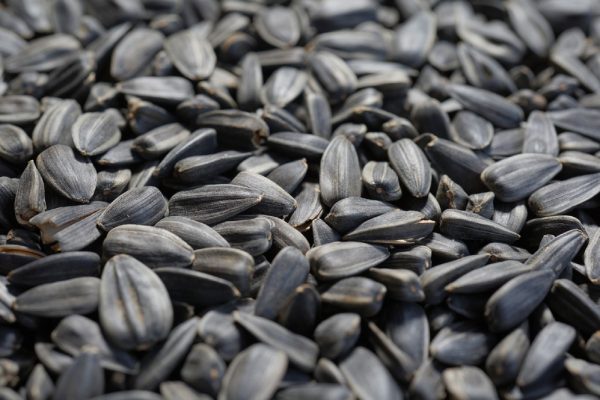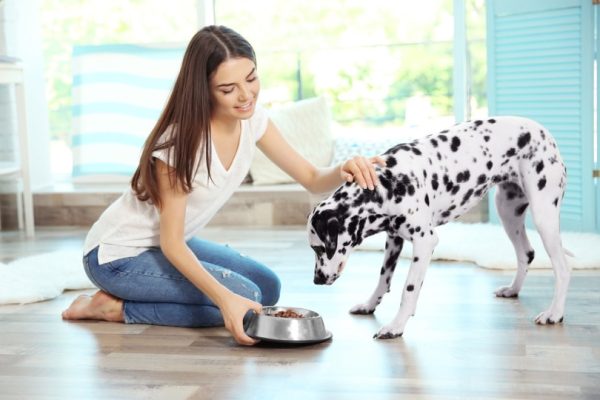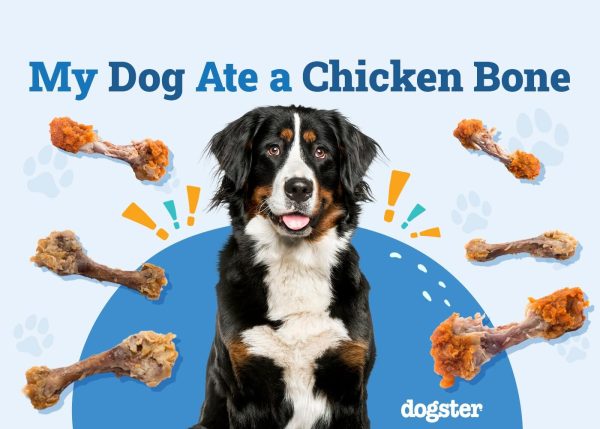In this article
Puppies sure are a mixed bag! On the one hand, you want them to stay their adorable and goofy puppy selves forever, but on the other hand, you can’t wait for them to grow up. But exactly when do dogs become adults?
Generally speaking, most puppies become adult dogs between the ages of 1 and 2 years. That said, each puppy will reach adulthood at different times depending on their breed, size, socialization, and other factors. Read on for more about this topic!

When Is a Puppy Considered an Adult Dog?
There are three different facets that help determine the maturity of a dog: physical, sexual, and emotional. According to the American Animal Hospital Association, there are four major life stages in a dog’s life.1 These are puppy (birth to 6–9 months), young adult, mature adult, senior (last 25% of estimated life span), and end of life or terminal stage.
Puppyhood ceases when rapid growth ceases. Young adulthood covers the end of rapid growth to completion of physical and social maturation (3–4 yrs). Mature adulthood depends on size and breed but commences when dogs are physically and socially matured and lasts until the remaining 25% of their estimated life span.


When Do Puppies Reach Physical Maturity?
Many puppies will reach physical maturity before they are actually considered adults. This is especially true of small breeds.
Most small-breed dogs reach their adult height and weight by the time they are 6 months old but will continue to mature until about 12 months of age. Large breeds are slower to reach their adult height, and it typically takes 1 to 2 years before they have finished growing. This process can be particularly trying for owners with dogs that act like puppies but are adult-sized!
Puppy Growth Chart
| Small (0–20 lbs) | Medium (21–50 lbs) | Large (51–100 lbs) | X-Large (100+ lbs) | |
| 6 months | 75% fully grown | 66% | 60% | 50% |
| 9 months | 90% | 85% | 75% | 65% |
| 12 months | 100% | 95% | 85% | 80% |
| 15 months | 100% | 100% | 95% | 90% |
| 18 months | 100% | 100% | 100% | 100% |
The larger the dog, the slower the growth:
- Small breed dogs stop growing by about 6 to 8 months of age.
- Medium breeds take a little longer to grow than small breeds. Most stop growing by about 12 months of age.
- The average weight for adult large to giant breeds starts at about 70 pounds. They might reach full size in 12 to 18 months.
- Some giant breeds might take longer than the large breeds, but they should all reach physical maturity by 24 months.
Keep in mind that until your puppy has reached their full adult size, you must ensure that they are receiving the proper diet and exercise to support their growth and development. Also, a large breed puppy’s dietary requirements are particularly specific, as their large bones shouldn’t grow too fast, as this can lead to orthopedic problems.


When Do Puppies Reach Sexual Maturity?
Sexual maturity happens much sooner than physical and mental maturity. This stage is when dogs can physically start reproducing, which is roughly 6 months to 2 years of age. This means they can have puppies at this age, but most experts state this is too young.2
When Do Puppies Reach Emotional Maturity?
Emotional maturity is the pinnacle of when a puppy is officially an adult. This is when they lose most of that wild puppy behavior (though many dogs tend to maintain it for most of their lives).
Emotional maturity takes longer than sexual and physical maturity, and it isn’t quite as noticeable either. Much of it involves hormones as the puppy ages, and just like with human children, they will test their boundaries and act out. But around ages 12–18 months, most puppies will start to settle into becoming adults.
- They settle down more readily and are overall calmer.
- They start to pay attention and respond to social cues from other dogs.
- They are more attentive to training and generally less distracted.
You should be able to judge when your puppy seems to have settled into adulthood, as they will simply seem less puppyish.


What Are the Signs That Your Puppy Is Growing Into an Adult?
There are several quick signs you can look for when trying to figure out if your puppy is an adult.
- Loss of baby teeth
- Less-destructive behavior
- Calmer
- Won’t need to eat as frequently
- Sexual maturity
- Adult coat
- Stops growing
- Fewer “accidents” in the home
- Not as playful
- Less or more social with other dogs

Caring for Your Growing Puppy
While your puppy is growing up, you’ll need to meet their physical needs, which will change over the 1–2 years that they mature.
Dog Food
Puppy food is high in protein and calories and has controlled levels of fat, which support their growing bodies and all the energy that they are constantly spending. They also require small, frequent meals to maintain their fast metabolic rate. Once they are physically mature, they should be switched to adult dog food, which is less calorie-dense, so they don’t become overweight.
Whichever food you choose will need to reflect not only their size but also their energy levels. Transitioning your puppy to a new diet should be done slowly in order to avoid an upset stomach.

Exercise
How much exercise any dog needs depends on their breed, size, age, sex, and health. Small breeds can get most of their exercise needs taken care of just by running around the house, but large dogs will typically need more than 30 minutes of vigorous exercise every day (some breeds need up to 2 hours).
Exercising your puppy is essential, but don’t overexert them or allow excessive jumping and other strenuous activities. Their bones and joints are still growing and can be permanently damaged, particularly in large and giant breed puppies.
Veterinary Care
All dogs must be seen by a vet every year for a wellness check and annual vaccines. Puppies must be seen more frequently for their vaccination schedule, typically at 6 to 8 weeks, 10 to 12 weeks, and 14 to 16 weeks.
Getting your puppy spayed or neutered is usually recommended by 6 months of age. However, new research has shown that the ideal age to desex a particular puppy needs to be adjusted to their breed. For some dogs, that age is beyond 11 or even 23 months. The goal is to avoid the health problems associated with spaying and neutering a puppy too early. Ask your veterinarian for advice so you can determine the best time to spay or neuter your puppy.
If you need to speak with a vet but can't get to one, head over to PangoVet. It's our online service where you can talk to a vet online and get the advice you need for your dog — all at an affordable price!

Supplies
In most cases, you will need to invest in new supplies as your puppy grows. Some items you might be able to use throughout their lifetime, particularly if your puppy won’t get much bigger as an adult.
You might need a new crate (though many crates are adjustable in size) and a new dog bed. You will also need new collars and leashes and potentially bigger food and water bowls. New toys will definitely be an ongoing expense.

Frequently Asked Questions
What Age Is My Puppy Considered an Adult?
Smaller dogs might be considered adults by 12 months, medium dogs by about 15 months, large breeds by 18 months, and giant breeds by 18 to 24 months. But every dog is different and these are just averages.

What Are the Life Stages of a Dog?
It starts with puppyhood, which is from birth to about 6 months. Newborn puppies spend most of their time with their mothers and siblings until they are about 10–12 weeks old, which is typically when they get adopted. This is also when they get their vaccinations and training (especially housetraining).
Adolescence or young adulthood technically starts at 6–9 months of age, depending on the dog’s size or breed. This is when sexual maturity kicks in. You should also start working with your vet to figure out the best time to get your dog spayed or neutered to prevent unwanted pregnancies and health problems.
Of course, you’ll need to persevere with their training. Like with any teenager, this can be a challenging time for you both!
Adulthood or mature adulthood is the stage when your puppy is officially an adult. This can start at about 18 months for small dogs or at 3 years for large breeds. Your dog will be more settled down and should be fully trained if you stay on top of the early training.
Finally, dogs will enter their senior years, which can be from 7 to 12 years or more, depending on the dog’s size. Small breeds tend to live longer than large breeds. Your dog will start to slow down, and you’ll need to stay on top of veterinary visits. Most geriatric dogs or those in end-of-life or terminal stages need specific care, diet, and medical attention.
How Long Do Dogs Live?
This depends on their size, level of care, nutrition, food quality, and genetics. Small dogs can live anywhere from 12 years to 20 years, depending on the breed, and large dogs might live for 5 to 13 years. This is generalizing, though, as giant breeds can outlive small dogs. It’s all about their health and how well they are cared for.

Conclusion
You should now be an expert about when a puppy is officially an adult dog! Those early years are critical in forming your puppy into a happy and well-adjusted dog through training, socializing, and keeping them healthy and happy.
Spend as much as you can with your puppy and enjoy that stage as much as you can—those 1–2 years will go by fast!
Featured Image Credit: Carina Svardal, Shutterstock



















